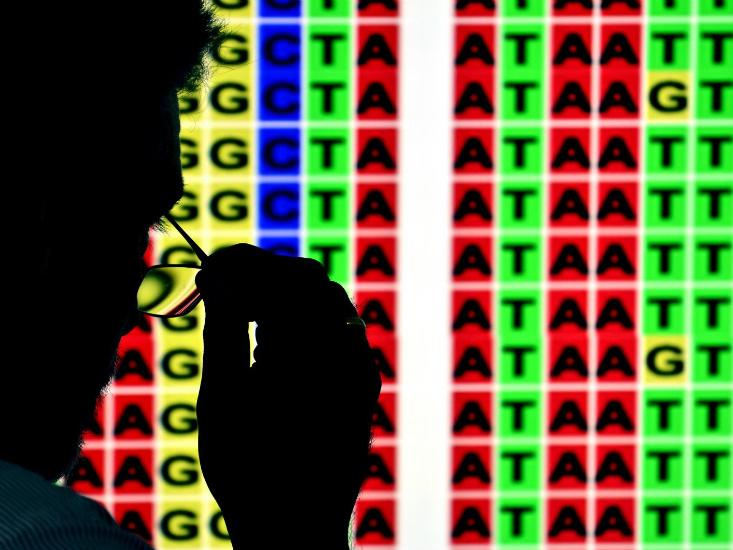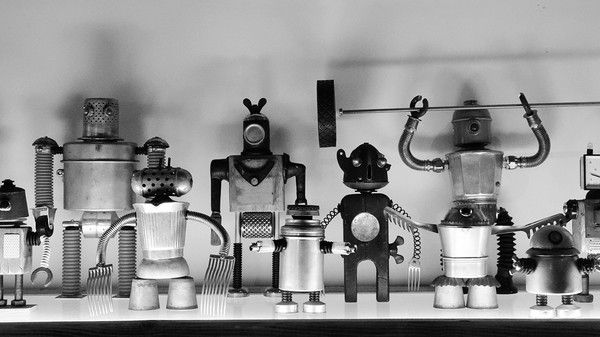By Peter Diamandis — SingularityHub
This blog is about the downside of exponential technology: digital crime.
Normally, I choose to focus on the immensely positive impact technology has on humanity – the Abundance mindset.
By Peter Diamandis — SingularityHub
This blog is about the downside of exponential technology: digital crime.
Normally, I choose to focus on the immensely positive impact technology has on humanity – the Abundance mindset.
By Jason Dorrier — Singularityhub
![]()
We tend to think of cars as a mature technology. They’re good enough to be boring. But something weird is happening. Silicon Valley is eyeing the car business. First it was Tesla, Google—even Uber. Now, it’s Apple.
According to Bloomberg, Apple has a team of 200 secretly working on a car. They’ve evidently been luring talent away from Tesla with lucrative bonuses and comp. And battery-maker A123 Systems filed a lawsuit against Apple for poaching its employees. The rumor? Apple’s aiming to develop an electric car by 2020.
It sounds bizarre—but it might not be that crazy.
Read more
By Jason Dorrier — SingularityHub
Why does 3D printing get all the love? Probably because it evokes visions of Star Trek’s famous replicator. Back here in the humble 21st century, however, it’s just one of the computerized  manufacturing methods set to upend industry. Another method, subtractive manufacturing, is the yin to 3D printing’s yang.
manufacturing methods set to upend industry. Another method, subtractive manufacturing, is the yin to 3D printing’s yang.
While additive manufacturing (or 3D printing) builds parts layer by layer from the ground up, subtractive machines (like 5-axis mills) whittle precision parts out of solid chunks of metal.
Rebecca Boyle — aeon
Five years ago, in a new city and in search of a new hobby, I decided to try playing a musical instrument for the first time. I had never learned to read music; in my grade school, the optional orchestra class was offered at the same time as the optional robotics class, and I chose the latter. Understanding nothing about chords or music theory, I settled on the relatively simple mountain dulcimer, a three-stringed lap instrument from Appalachia.
I was proud of how quickly I picked it up. I could replicate many of the old-time fiddle tunes, Civil War ballads and Ozark folk songs my instructor played during demonstrations, and I learned to discern notes by ear. I was hardly a virtuoso, however, and after a few months I hit a plateau. I could hear how they were supposed to sound, but challenging, faster-tempo songs remained out of my grasp. Frustrated, I distinctly remember thinking: ‘If only I’d learned music as a kid, I might have been great at this.’
Read more
Posted By Regan Penaluna — Nautilus

When we talk about genes, we often use expressions inherited from a few influential geneticists and evolutionary biologists, including Francis Crick, James Watson, and Richard Dawkins. These expressions depict DNA as a kind of code telling bodies how to form. We speak about genes similarly to how we speak about language, as symbolic and imbued with meaning. There is “gene-editing,” and there are “translation tables” for decoding sequences of nucleic acid. When DNA replicates, it is said to “transcribe” itself. We speak about a message—such as, build a tiger! or construct a female!—being communicated between microscopic materials. But this view of DNA has come with a price, argue some thinkers. It is philosophically misguided, they say, and has even led to scientific blunders. Scratch the surface of this idea, and below you’ll find a key contradiction.
Since the earliest days of molecular biology, scientists describe genetic material to be unlike all other biological material, because it supposedly carries something that more workaday molecules don’t: information. In a 1958 paper, Crick presented his ideas on the importance of proteins for inheritance, and said that they were composed of energy, matter, and information. Watson called DNA the “repository” of information.
Read more
Steve Jones, Global vice president of big data, Capgemini — Quartz

Can an algorithm be racist? It’s a question that should be of concern for all data-driven organizations.
From analytics that help law enforcement predict future crimes, to retailers assessing the likelihood of female customers being pregnant (in the case of Target, without their knowledge), the increasing scale of computer cognizance is raising difficult ethical questions for business.
By Stephen Cass with Charles Q. Choi — Spectrum

It seemed like the nascent augmented-reality industry was on a roller coaster at the start of the year. Things looked bad when Google announced that it was terminating sales of its Glass headset in favor of developing some new version to be announced at some time in the future. (Possibly in a galaxy far, far away.) But then the future looked bright again when Microsoft unveiled its HoloLens AR headset at a razzle-dazzle press event in late January.
But the truth is that well before the debut of HoloLens, the AR ecosystem had been moving away from Google’s model of always-available wearable computing and toward the idea that AR headsets should be—at least for now—something you use only for specific tasks. At the Consumer Electronics Show (CES) in Las Vegas just after New Year’s, most of the capabilities advertised a few weeks later by Microsoft for its HoloLens prototypes were already on display on the show floor (albeit spread among several exhibitors), and they were mostly doing industrial and enterprise work.
Read more
by Tanya Lewis — Live Science
From Apple’s iPhone assistant Siri to the mechanized attendants at Japan’s first robot-staffed hotel, a seemingly disproportionate percentage of artificial intelligence systems have female personas. Why?
“I think there is a pattern here,” said Karl Fredric MacDorman, a computer scientist and expert in human-computer interaction at Indiana University-Purdue University Indianapolis. But “I don’t know that there’s one easy answer,” MacDorman told Live Science.
Graham Templeton — Motherboard

The robot stares down at the sickly old woman from its perch above her home care bed. She winces in pain and tries yet again to devise a string of commands that might trick the machine into handing her the small orange bottle just a few tantalizing feet away. But the robot is a specialized care machine on loan from the hospital. It regards her impartially from behind a friendly plastic face, assessing her needs while ignoring her wants.
If only she’d had a child, she thinks for the thousandth time, maybe then there’d be someone left to help her kill herself.
Hypothetical scenarios such as this inspired a small team of Canadian and Italian researchers to form the Open Roboethics Initiative (ORi). Based primarily out of the University of British Columbia (UBC), the organization is just over two years old. The idea is not that robotics experts know the correct path for a robot to take at every robo-ethical crossroad—but rather, that robotics experts do not.
“Ethics is an emergent property of a society,” said ORi board member and UBC professor Mike Van der Loos. “It needs to be studied to be understood.” Read more
This was one of the best tributes to Leonard Nimoy, from a real spaceship:
— Terry Virts (@AstroTerry) February 28, 2015
/photo/1
